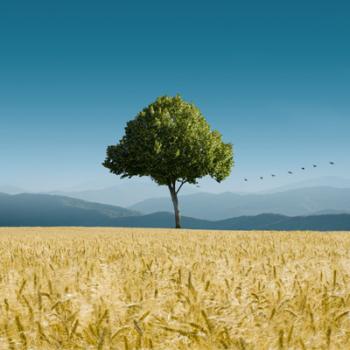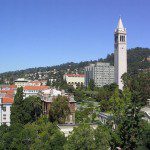Lectionary Reflections
Joshua 5:9-12
March 10, 2013
I have always wished that I could sit quietly in the room where the creators of the lectionary are going about their work. Many times their text selections are obvious and thoroughly appropriate for the day; one could hardly quarrel with the choices for Holy Week that focus on II-Isaiah's portrait of the suffering servant—a no-brainer indeed. But on occasion, I admit to a good bit of head scratching when I prepare to address the passage from the Hebrew Bible selected for a given day. The selection for this Sunday, Lent 4, is to me such a passage. What were they thinking? Joshua in Lent?
I can only imagine that some member of the lectionary committee was familiar with an imaginative allegorical use of this text somewhere in Christian history, a use that I am fully unacquainted with. But I might be able to guess what the allegory may have been. Perhaps since Joshua 5 focuses largely on the desperate need for circumcision—the first eight verses speak to that concern in turgid and repetitive prose—and several places in the New Testament address circumcision not as the physical act of cutting the foreskins of males, but rather as a "spiritual circumcision" of the heart in the light of the coming of Jesus, the "rolling away of the disgrace of Egypt," named in verse 9, may refer allegorically to the need for us on our Lenten journey to receive from God a new beginning, having our own disgrace "rolled away."
And, to continue my speculation, after the "disgrace of Egypt" (the sinful past?) has been removed, the people celebrate the Passover feast in the wilderness. And so we too allegorically are bid to celebrate worship during Lent as a sign that we are forgiven by God. Hence, Joshua 5 becomes a prefiguring of our need for forgiveness by God and our need of the worship of God as we move toward Holy Week and Easter. Thus ends my allegorical musings.
Whether such thinking guided the lectionary creators I can never know, but when I confront an odd passage like this one, rather than run screaming to the Gospel for the day (I know you do—don't lie now!), I take it as a challenge to probe deeper to see if other ore may be mined from what appears to be a played-out vein. So, let's grab our shovels and dig.
Joshua Reflects the Legacy of Moses
The book of Joshua is an edited collection of the old and the new. Ancient traditions are surely part of the whole, but just as surely an editor or two have structured the book to answer certain special theological/historical concerns well after the time of the events portrayed. The book bears both a strong Deuteronomic cast as well as a decidedly priestly concern. In effect, it is a historical fiction, employing old stories to speak to much later times and interests. After Moses died, it says, and Joshua had assumed command of the people, exactly what did he do to maintain that command? And how did the people respond to his leadership? And just how are the later readers of these stories to respond to the continuous call of YHWH for their lives?
It is said again and again in the book that Joshua obeyed YHWH in all things, and as a result of that obedience, Israel successfully made its way into the land promised to them. They crossed the Jordan as the result of a miracle (Josh. 3) very like the miracle at the Sea of Reeds (Ex. 14-15) after they had cleverly assessed the strengths of the city of Jericho through subterfuge (Josh. 2). In effect, Joshua is retracing the work of Moses by tricking the people of Jericho (just as Moses plundered the Egyptians) and crossing the waters of the Jordan with the help of the power of YHWH—just as Moses crossed the Sea of Reeds with the power of YHWH. And the priestly editor now adds the concern of circumcision, suggesting that Joshua had to circumcise the sons of those warriors who had all died in the forty-year wandering in the wilderness of Sinai (Josh. 5:2-7). There is little real concern with circumcision in the stories of Moses in the book of Exodus, save the very mysterious circumcision rite that Moses himself receives in Exodus 4:24-26. But for the priestly editors of Joshua, circumcision was a crucial act that bound the people in covenant with YHWH.
And after the circumcision is performed, it is equally crucial for the priests that the people celebrate the feast of Passover, again as a sign that they are connected to YHWH regularly in corporate and ritualized worship. Of course, the Passover is that very remembrance of the great act of YHWH through Moses. And for these editors, what Moses has done, Joshua must also do.
We Are Called to Take Responsibility for Ourselves
But a new twist on the Moses/Joshua parallel is to be found at Joshua 5:11-12. Up until now, just before the great assault against the inhabitants of the land of promise begins (Josh. 6f), the people have subsisted on the miraculous manna of YHWH, that sticky sweet substance that appears in the morning and just as quickly disappears as the day progresses (Ex. 16). Now, at the verge of the land, the Israelites for the first time eat "the produce of the land, unleavened cakes and parched grain" (Josh. 5:11). The manna is no more; "it ceased on the day they ate the produce of the land; they ate the crops of the land of Canaan that year" (Josh. 5:12).





